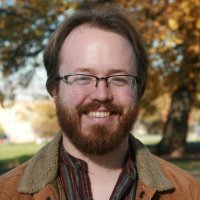The Day the Machines Came
We said, finally, here is some help
and for cheap. Somewhere someone
had dug the graves of a bygone age
and turned up the muck to racket
the tractor to life. We thirsted,
had no money, that day. Oils forced
from subterranean slumber became gold.
We could bring bananas back from town,
send the children to school, buy more
land, send our youngest son away
to college. Why didn’t he return?
Sunlight glinted off metal shoulders,
beat less long on our backs. The earth
smelled warm, that day, felt still
soft and inexhaustible, while the prophet asked
Why do you spend your money
for that which is not bread, your labor
for that which does not satisfy?
Soul thirsts, flesh faints, the soil
grinds below the turning blade, we eat
of new cheap calories, energy dug
from deep and irreplaceable. Were we
worse sinners for what we began,
that day? Then we thirsted, needed money,
left the land to others and fewer.
We sit down to eat and drink
and then rise up to play. Someone
somewhere exfoliates the earth
to charge our little bricks, the metals
and the heavy metals someone somewhere
has ordered from the rock,
that hands have bled against,
so we may sit to eat and play
and bend above the little worlds
that we’ve retreated to. When the screen
goes black, what does it reflect?
Here is help, and cheap. Does this test
provide a way out? We thirst, need money,
dig new graves and leave the land to play.
Chloe Gazes through the Window Blinds
Watchful child, slatted with sun, I wish
that we could always be like those who dream
and never consider the things of old.
Already, clouds break the lines of light
and you squirm. You will someday learn
of those taken weeping, bearing the seed
for sowing. They say, sweet pea, that we
shall all come home, carrying our sheaves,
someday. The lines return, in spots of time.
Sooner, you will surely see some uniform
in flesh: as to zeal, a persecutor,
as to righteousness under the law,
blameless. Will you plant with me
this root of spikenard? Will you render
the costly pound and kneel, with me,
before the weariness of this world?
We do not always have each other, but
when we rise, my shoulder will be close
for you to lean a cheek on if you will,
as you do now, in elbow crook, dreaming—
a new thing now springs forth, do you not
perceive it?—your eyelids streaked with light.
John Linstrom is a Mellon Postdoctoral Fellow in Climate and Inequality at The Climate Museum in New York City. His poems have recently appeared widely in journals including North American Review, The New Criterion, Atlanta Review, The Citron Review, and Roanoke Review. His nonfiction has recently appeared in The Antioch Review and Newfound. He is also the series editor of The Liberty Hyde Bailey Library for Cornell University Press, making available the works of Progressive-Era environmental philosopher L. H. Bailey. His editions of Bailey’s works include The Nature-Study Idea (Comstock-Cornell UP, forthcoming), The Liberty Hyde Bailey Gardener’s Companion: Essential Writings (coedited; Comstock-Cornell UP, 2019), and The Holy Earth (Counterpoint, 2015). He holds an MFA in Creative Writing and Environment from Iowa State University and a PhD in English and American Literature from New York University. John currently lives with his wife and their baby daughter in Queens.



















